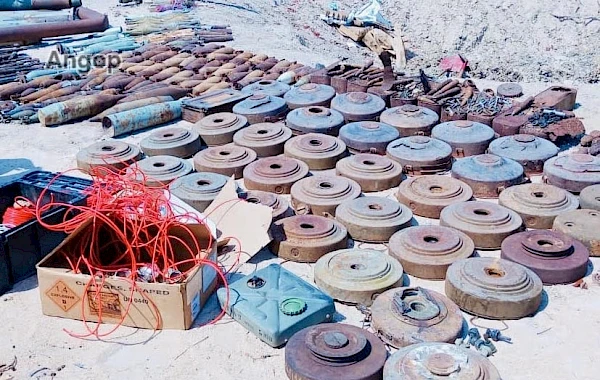Luanda – The director of the Technical Office from the National Public Works Council, Teresa Pedro, informed Thursday in the country's capital that the development of Municipal Master Plans (PDM), taking place throughout this year, in all municipalities of Angola, will count on financing from the World Bank (WB).
Speaking to the press, at the end of the 4th ordinary meeting of the National Council of Public Works (CNOP), led by the Minister of State for Economic Coordination, José de Lima Massano, the source clarified that this project will be broken down into municipal and urban master plans.
Municipal plans essentially aim to promote territorial and urban planning, as well as improving urban mobility and citizens' quality of life, avoiding the disorderly construction of housing.
Without advancing the amount of financing to be allocated to the plans, Teresa Pedro said that the 4th ordinary meeting of the National Council of Public Works served to analyze the method of preparing the PDM and evaluate the integrated projects, with emphasis on the construction of airports in Cabinda and Mbanza-Congo, this in the province of Zaire, as well as assessing the level of execution of the Cabinda Refinery.
The meeting also assessed the works on Sumbe and Ndalatando's general hospitals in the province of Cuanza-Sul and Cuanza-Norte, respectively, as well as the integrated infrastructures of the energy and water sectors, telecommunications, health, education, higher education, among other projects underway in the country.
For his part, the Cabinda deputy-governor for the technical area, Agostinho da Silva, recalled that the Oil Refinery in his province has a financial execution of around 72%, while physical execution is at 64%.
With this level of execution, the director said that the infrastructure is expected to be fully done by July 2025.
Regarding the construction project for the Cabinda International Airport, Agostinho da Silva said that the demining work and geotechnical studies have already been completed, with work expected to kick off anytime this month.
Created through Presidential Decree No. 202/18, in force since August 31, 2018, the National Public Works Council (CNOP) is the advisory support body responsible for planning, supervising and monitoring the execution of relevant public works projects and of great technical complexity and with significant economic, social or environmental implications.
In addition to coordinating major State projects, CNOP is also responsible for monitoring private investments with direct and immediate impacts on public infrastructure or significant social implications that preventively ensures their synchronism, with a view to safeguarding efficiency and effectiveness, as well as technical and urban adequacy.
The council, which replaced the Technical Office for Coordination and Monitoring of Projects of the City of Luanda and the Superior Council of Public Works, runs its activity by a work plan that is submitted annually for approval by the President of the Republic, and must also send quarterly activity reports.
The decree of its creation also defines that bodies involved in the execution of major projects must coordinate with the CNOP, providing all information and providing conditions for monitoring, evaluating and inspecting public works works.
QCB/VC/CF/jmc




















